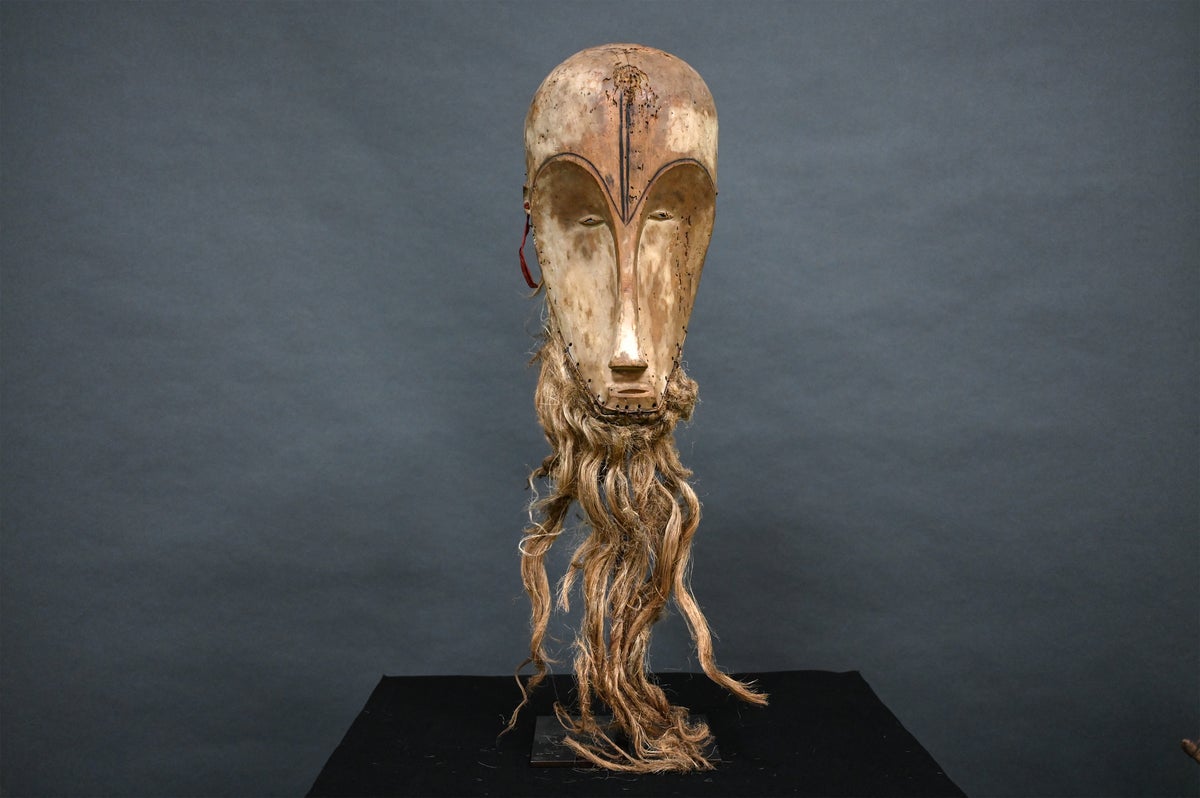
A second-hand deader in France is facing a lawsuit for allegedly deceiving a couple by selling an African mask at almost a 2,800,000 per cent markup.
An unnamed pensioner couple, who live in Eure-et-Loir, southwest of Paris, sold the rare mask to the dealer at €150 (£130) who further sold it at €4.2m (£3.7m).
As the case brought by the French couple opened on Tuesday, the dealer appeared in court.
But the Gabon government and campaigners have said that the rare artefact should instead be returned to its country of origin.
The rare 19th-Century “Ngi” mask which was made by the Fang people of Gabon was lying in dust in the attic of the couple’s holiday home in Gard, southern France. The couple had called the dealer as they had decided to sell their home.
The wooden mask was found in a cupboard in the house that belonged to the man’s grandfather, René-Victor Fournier, who had been a colonial administrator in Africa in the early 20th Century.
The dealer bought several items from the couple, including the wooden mask.
It was six months later that the couple while reading a newspaper found out that the mask had been in action in Montpellier and that it was an artefact even rarer than a Leonardo da Vinci painting.
The couple said they had “almost fallen off their chairs” when they recognised the photo and the auction catalogue said it was collected around 1917, in unknown circumstances by Fournier.
The discovery prompted excitement among art dealers and media, with one expert telling a French TV that only 10 such items were made by Fang masters.
“This type of mask is even rarer than a Leonardo da Vinci painting – we know of 22 paintings by the great master, but we only know of 10 to 12 masks created by the different Fang masters in Gabon,” the expert said.
At an auction in March 2022, the mask was bought for £3.7m by an unnamed person bidding by phone after being initially valued at £2.6m.
The couple later filed a civil suit against the dealer for giving them an unfair price and demanded the sale be annulled.
During the hearing in an Ales court, the lawyers for the couple contended that the couple should receive the profits from action fairly after they unknowingly sold it at £130.
“One has to be in good faith and honest; my clients would never have given up this mask at that price if they knew it was an extremely rare object,” their lawyer, Frédéric Mansat Jaffré, said this month to French outlets.
Representatives of the Gabon government however said that the mask was stolen in the first place and should be returned.
Solange Bizeau of the Collectif Gabon Occitanie said: “That mask was stolen at the time of colonisation … All these works of art – and so many that we see in museums – were taken, and the people who made them were told they were the devil’s work and they should instead believe in the Bible. And from that point on, these artefacts have appeared in Europe, enriching people who have made money from them for decades.”
“This mask has a soul, it was used to establish justice in our villages. The discussion in court has been about morality, but what about the morality of the spoliation of works of art and our dignity? Where is the morality in that?”
A decision by the court is expected in December.







